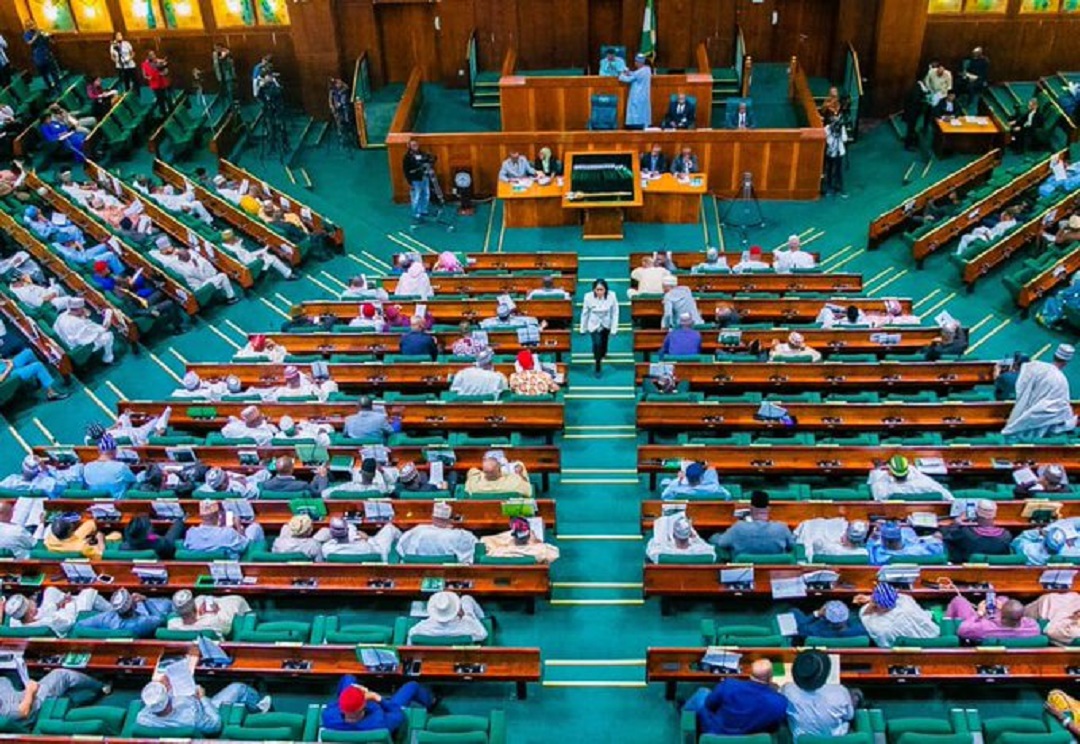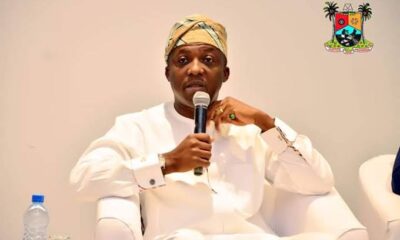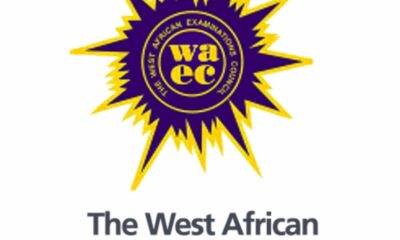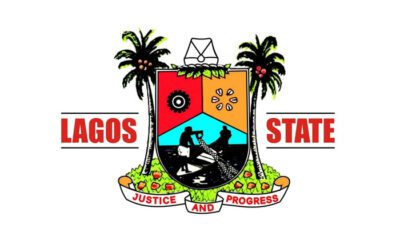News
LASG holds stakeholders’ meeting for review of youth policy
Towards ensuring the compliance of the State Youth Policy with the current socioeconomic realities, Lagos State Ministry of Youth and Social Development has organised a two-day Stakeholders Meeting for the Review of Lagos State Youth Policy.
At Ikorodu Youth Center, Ikorodu, the Permanent Secretary of the ministry, Pharm (Mrs) Toyin Oke-Osanyintolu in her welcome address said, “the State adopted the National Youth Policy of 2009 with a view to establish a sustainable youth agenda that would produce meaningful youth engagement as well as enhance their quality of life.
“In year 2016, the Lagos State Youth Policy which was a 5 – year plan was launched with 15-thematic areas and a well considered framework.It contained the commitments of the Government, the youth of Lagos State and the society in pursuance of youth growth and development.”
The Permanent Secretary further stated that ,”the Stakeholders’ Meeting was organised to critically assess the current youth policy by identifying the major gaps, challenges and its impact as the policy migrate from the current 15- thematic areas to the 5-pillars entrenched in the Revised National Youth Policy.”
In his remarks, Program Coordinator, Youth Alive Foundation, Mr Chamberlain Efukudoh described the step being taken by the State Government towards reviewing the document as a commendable one that should be pushed to its logical conclusion because the process has provided a feedback mechanism in the sense that it was done by critical stakeholders in the sector thereby making it not only participatory but wholistic in its approach.
On her part, Representative of United Nations Population Fund (UNFPA), Mrs Somefun Esther, while commending the State Government, said that the review was long over due taking into cognisance the fact that the current document didn’t capture some of the present realities being faced by the youth in Lagos State and issues affecting the youth must not be toyed with if the State must make progress in all areas.
In the same vein, representative of Youth Inspired Network, Oluwatoyin Adejokun stated that the review process was one that would make room for open and constructive contributions which its overall results would help the youth in fulfilling their potentials.
Stressing the essence of the document, the National Youth Council of Nigeria (Lagos State Chapter), Mr. Lekan Biliaminu and Lagos State Youth Ambassador, Miss Zainab Aderounmu said that the product of the review would go a long way in addressing the challenges currently faced by the youths in the State.
In her presentation, the Consultant, Dr Toriola Femi Adebayo said that with the review the Lagos State Youth Policy was migrating from 15-Thematic Areas to 5 pillars (Productive Workforce and Sustainable Economic Engagement of Youth; Health and Health -Promoting Life Style; Participation, Inclusiveness and Equitable Opportunities for all Youths; Promotive and Protective Environment for Youth Development; and Partnership Building and Effective Collaboration) which would be in tandem with the National Youth Policy and wholistic in addressing the challenges of the youths in Lagos.
News
JUST IN: Student loan application portal opens May 24


The Federal Government, through the Nigerian Education Loan Fund, on Thursday night announced that May 24, 2024, was the official date for “the opening of a portal for student loan applications,” a statement signed by the media lead of the Fund, Nasir Ayantogo said.
Ayantogo, in a statement, said the opening of the application portal marks a significant milestone in the commitment of President Bola Tinubu to” fostering accessible and inclusive education for all Nigerian students.”
On June 12, 2023, Tinubu signed the Access to Higher Education Act, 2023, into law to enable indigent students to access interest-free loans for their educational pursuits in any Nigerian tertiary institution.
The move was in “fulfilment of one of his campaign promises to liberalise funding of education,” a member of the then Presidential Strategy Team, Dele Alake, said.
The Act, popularly known as the Students Loan Law, also established the Nigerian Education Loan Fund to process all loan requests, grants, disbursement, and recovery.
Although the government initially announced that the scheme would be launched in September, it suffered several delays, leading to an indefinite postponement in early March.
The Presidency had linked the delay to Tinubu’s directive to expand the scheme to include loans for vocational skills.
After receiving a briefing from the NELFUND team led by the Minister of State for Education, Dr Yusuf Sununu, on January 22, the President directed the Fund to extend interest-free loans to Nigerian students interested in skill-development programmes.
Tinubu based his decision on the need for the scheme to accommodate those who may not want to pursue a university education, noting that skill acquisition is as essential as obtaining undergraduate and graduate academic qualifications.
“This is not an exclusive programme. It is catering to all of our young people. Young Nigerians are gifted in different areas.
“This is not only for those who want to be doctors, lawyers, and accountants. It is also for those who aspire to use their skilled and trained hands to build our nation.
“In accordance with this, I have instructed NELFUND to explore all opportunities to inculcate skill-development programmes because not everybody wants to go through a full university education,” he had said.
Through the portal, students can now access loans to pursue their academic aspirations without financial constraints.
The portal, according to the statement, provides a user-friendly interface for students to submit their loan applications conveniently.
“We encourage all eligible students to take advantage of this opportunity to invest in their future and contribute to the growth and development of our nation.
“Students can access the portal on www.nelf.gov.ng to begin application,” the statement said.
News
Reps threaten cancelation of PPP and concessions in transport ministry


The House of Representatives Committee on Public Assets has issued a stern warning to cancel all Public-Private Partnership (PPP) agreements and concessions within the Federal Ministry of Transport.
The announcement came during a session in Abuja where the committee interrogated officials from the ministry, led by Permanent Secretary Pius Oteh.
Chairman of the Committee, Rep. Ademorin Kuye, expressed dissatisfaction with the lack of compliance with existing laws in the PPP and concessions agreements, particularly concerning the Nigeria Railway Corporation (NRC) and the Railway Property Management Company Limited (RPMC).
Kuye stated that non-compliance with extant laws could lead to the cancellation of these agreements.
Oteh also told the committee that the ministry has over 170 leases but was unable to provide the relevant documents as required by the lawmakers to prove whether there were compliance with the extent laws.
One of the required documents is the receipt of payment which the lawmakers said was not attached to the documents submitted by the ministry in disregard to their request.
The committee in its resolution invited the Minister of Transport, Chief Executive Officer of Nigeria Railway Corporation and other relevant organisations to appear on their next sitting.
“As you may be aware, this committee will not hesitate to invoke the relevant constitutional provisions if any head of ministry, agency or department fails to honour the invitation of this committee.
“We can issue an arrest warrant and direct the relevant security agencies to bring such person here,” he said.
He noted that improper management of government assets through public Private Partnership and Concessions has been one of the major challenges in infrastructure development.
It would be recalled that the House of Reps through its resolution in Feb. mandated the committee on Public Assets and Special Duties to probe Public-Private Partnership initiatives and concession agreements across the country.
The committee noted that in spite of initiating several PPPs and concession programmes, the outcomes have been mixed, with some projects stalled and others failing to yield anticipated results.
News
Edo election: INEC fixes May 27 to start distribution of PVCs


The Independent National Electoral Commission, INEC, in Edo State, will begin the distribution of about 373,030 uncollected Permanent Voter Cards, PVCs on May 27.
The state Resident Electoral Commissioner, REC, Anugbum Onuoha, made this known in Benin on Thursday, during a stakeholders’ meeting on the forthcoming Continuous Voter Registration, CVR, exercise.
Onuoha stated that the PVC collection exercise would be done side-by-side with the CVR exercise, also scheduled for May 27.
INEC Chairman, Mahmood Yakubu, had announced to begin the CVR exercise in Edo and Ondo ahead of the governorship elections in the two states.
Onuoha says while the statistics of registered voters in Edo is 2,501,081, collected PVC is 2,128,288 and uncollected PVCs stand at 373,030.
He said both the CVR and the PVC collection would be a 10-day exercise, starting from May 27 to June 5, from 9.00 a.m. to 3.00 p.m. daily, including weekends.
The REC explained that the exercise would be conducted in the 192 wards and the state headquarters of INEC in Edo.
He also disclosed that each registration centre would be managed by two officials drawn from the commission and the National Youth Service Corps, NYSC.
“In addition to the registration of voters, the commission will also make available the uncollected PVCs for collection during CVR.
“Also note that no PVC will be collected by proxy. Registered voters should come in person to collect their cards.
“There will be no pre-registration option because of time constraints,” he said.
Onuoha, however, appealed for the support of the media, Civil Society Organisations, CSOs, traditional rulers and religious leaders in encouraging voters to locate and pick up their PVCs.
According to him, the commission has published the final list of candidates for the Edo governorship election following the conclusion of primaries of the political parties.
-
Finance4 months ago
Court orders Sen. Victor Umeh to repay N136m bank debt to AMCON
-



 Abuja Update3 months ago
Abuja Update3 months agoUNDP, FG partnership needed to achieve inclusion, equity- Minister
-
capital market2 years ago
Rt.briscoe, FBNH, Others halts negative performance of stock market
-
Abuja Update2 months ago
Banks drive stock market performance with N147bn gain
-



 Health1 month ago
Health1 month agoCapacity training will reduce migration of health workers- NPHCDA
-



 Business3 weeks ago
Business3 weeks agoTingo Group unveils Tingo Electric, Tingo Cola drink at Lagos launch
-
Submission Guidelines4 months ago
CALL FOR SUBMISSIONS: POETRY COLUMN-NND
-
News4 months ago
Oil thieves sponsoring malicious media campaign against Navy – Spokesman














